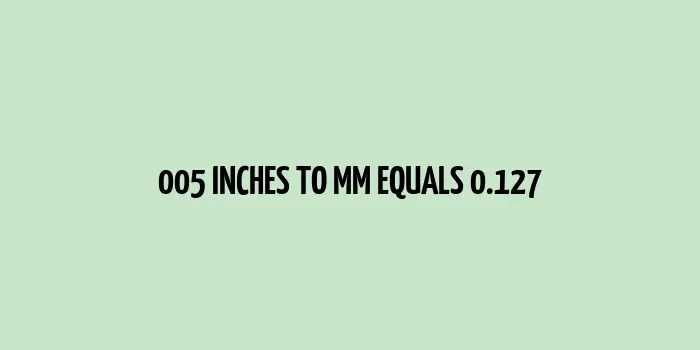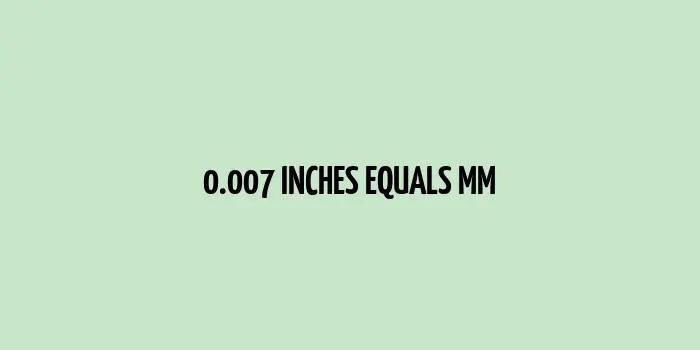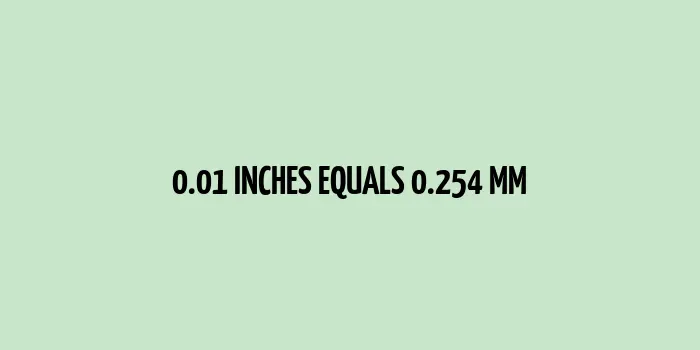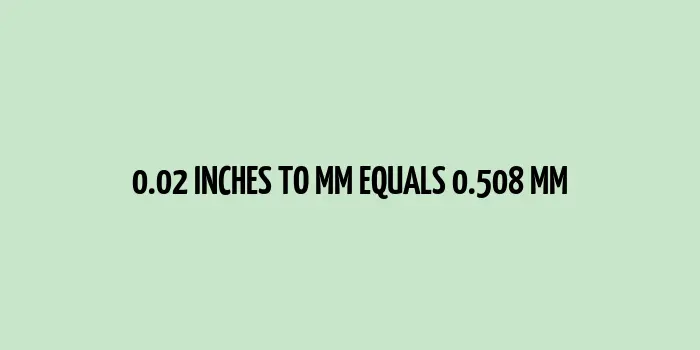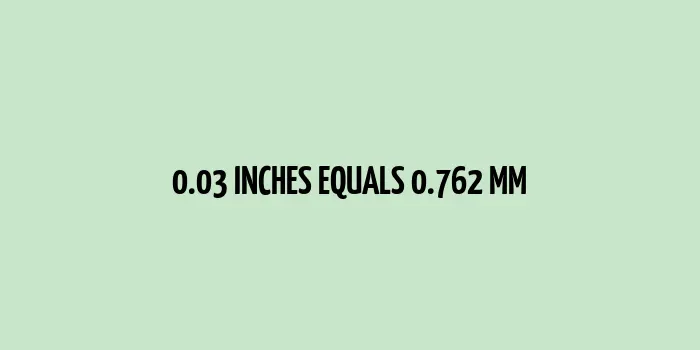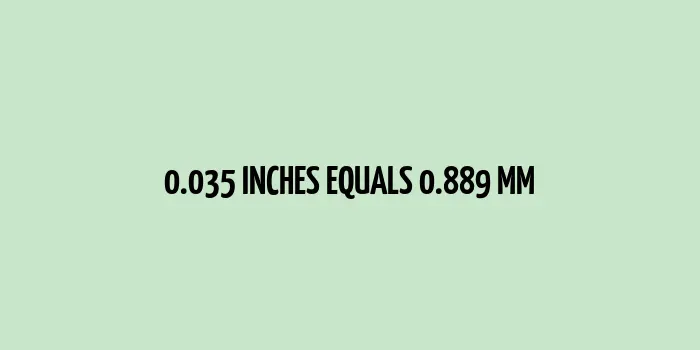0.2 inches to mm (Inches to Millimeters)
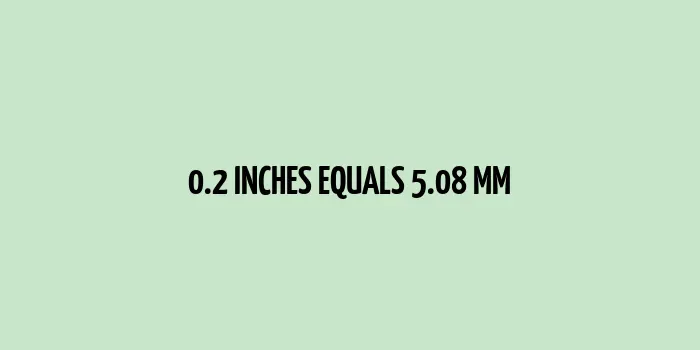
Here is how to easily convert 0.2 inches to mm
0.2 inches is equal to 5.08 millimeters. This conversion is essential for anyone regularly dealing with measurements, whether for personal projects or professional tasks. Understanding these conversions can streamline your work, making processes smoother and results more accurate.
When working on projects that require precise measurements, it is common to encounter different units. The metric system (millimeters) and the imperial system (inches) are the primary measurement systems used worldwide. Knowing how to convert between them efficiently—like converting 0.2 inches to millimeters—can save time and reduce errors.
Why Knowing Conversions Like 0.2 Inches to mm Matters
Conversions between inches and millimeters are crucial for various fields, including engineering, construction, and manufacturing. For instance, an engineer designing mechanical parts must ensure that every component fits perfectly, regardless of whether measurements are given in inches or millimeters. 0.2 inches converting to 5.08 millimeters can be critical in such precise tasks.
The Imperial system is widely used in the United States, while the metric system is more common globally. Hence, conversion is often necessary for seamless communication and collaboration across borders.
Simple Conversion: 0.2 Inches Equals 5.08 mm
To convert 0.2 inches to millimeters, you use the basic conversion factor where 1 inch equals 25.4 millimeters. Here's the straightforward formula:
[ 0.2, \text{inches} \times 25.4 = 5.08, \text{millimeters} ]
This calculation shows that 0.2 inches translates to 5.08 millimeters exactly. This precision is crucial for tasks requiring high accuracy.
Practical Applications and Relevance
- Engineering and Design: Precision is key, and even a small conversion error can lead to significant issues in the final product.
- Manufacturing: Machines often require settings in millimeters for fine-tuning, making it essential for American manufacturers exporting globally to know these conversions.
- Everyday Use: Simple household tasks and DIY projects often need these conversion skills, whether you're measuring materials or setting up new devices.
A Glimpse Into Conversion Statistics
- According to a 2019 study, approximately 80% of global engineering designs rely on the metric system, making quick conversion skills indispensable.
- The U.S. Metric Association advocates that adopting the metric system more broadly could save industries billions in conversion costs.
An an analogy, consider cooking in your kitchen. You wouldn't want your delicious recipe to fail because you mistook teaspoons for tablespoons. Similarly, in any technical field, using the proper conversion ensures your "recipe" for success is just as foolproof.
FAQ
What is 0.2 inches in mm?
0.2 inches is equal to 5.08 millimeters. This conversion can be done using the formula: (0.2 \times 25.4 = 5.08).
How do I convert inches to millimeters?
To convert inches to millimeters, multiply the inches by 25.4. For example, to find out how many millimeters are in 0.2 inches, you multiply 0.2 by 25.4, which equals 5.08 millimeters.
Why is it important to convert inches to millimeters?
Converting inches to millimeters is important for ensuring precision in fields like engineering, construction, and manufacturing. It facilitates international collaboration and helps maintain consistency in measurements.
If you want to explore more about the metric system and its adoption, you can visit the International System of Units (SI) official page.
By understanding and efficiently converting measurements like 0.2 inches to millimeters, you enhance the accuracy and efficiency of your work across various applications. This simple yet vital skill bridges communication gaps in a metric-dominated world.
